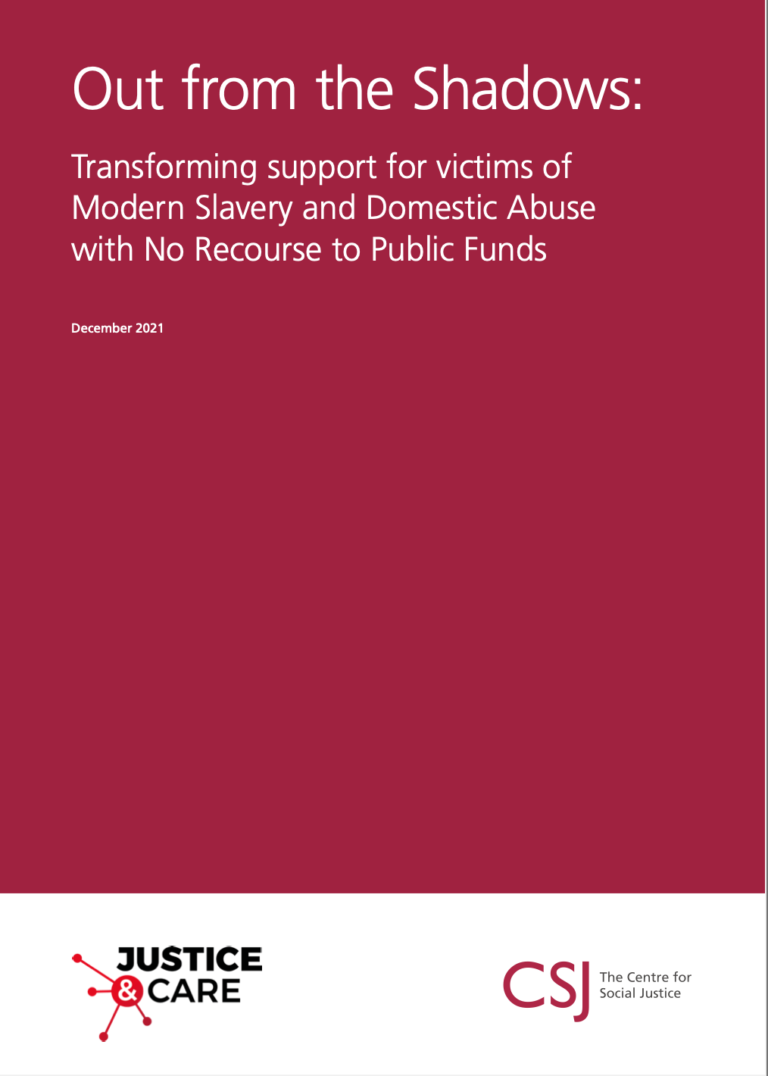Domestic abuse and modern slavery are hidden crimes that flourish because victims feel unable to come forward. Stigma, fear that their testimony will not be believed, and concern about the consequences of reporting abuse can deter individuals from seeking help. But if victims continue to suffer in silence, their abusers will go on wreaking havoc in their lives – and claim countless other victims.
In the course of our work on modern slavery and domestic abuse we have come to understand that a particular cohort of victims faces additional barriers and deterrents to accessing support, reporting abusers and seeking justice: those who, due to their immigration status, have no recourse to public funds.
This report explores the shared experiences of the victims of these hidden crimes, to understand and compare the support available and the impact of immigration status and having no recourse to public funds, on recovery and the pursuit of justice. Our paper outlines how enabling these victims to access support, housing, and security can stop abusers and slavery gangs in their tracks as well as supporting the pursuit of justice. We aim to influence forthcoming legislation, including the Victims Bill and the Nationality and Borders Bill, as well as the policy that underpins it.

